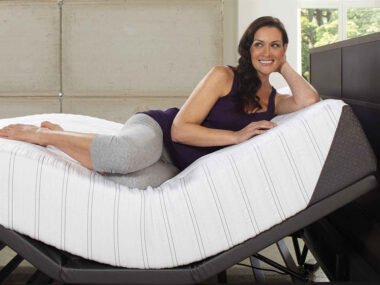Buying a house is a big investment, and you want its value to only grow during your ownership. It’s also the place where you keep your most treasured possessions which can be attractive to burglars, so excellent security is a must. Beyond that, it’s a haven where you and your family should feel safe and calm. Here’s some simple precautions to take that will help protect your home.
Invest in home insurance
Although it doesn’t directly safeguard your property, home insurance helps with protection in essential ways. If your property is damaged due to circumstances outside of your control such as flooding or structural failure, or if your contents are stolen, an insurance provider can give invaluable financial support to help you conduct urgent repairs and replace lost items.
Without a comprehensive policy in place, a burst pipe could leave you thousands of pounds out of pocket, while a house fire could wipe out everything you own.
Choosing the right policy requires more than a quick online search. As well as considering the cost, investigate the policy details including what you’re covered for and voluntary excesses. Varying levels of protection are available so read the small print to ensure you’re not left covering key losses yourself.
You may have to arrange contents insurance separately – to avoid disputes when making a claim, ensure you declare the value of your possessions correctly.
Set up home security systems
Visibility should underpin your home security as this is the biggest deterrent to burglars. Installing outside lighting is a simple way to ensure your home is illuminated 24/7, leaving nowhere to hide. You can find solar-powered models that recharge during the day and operate via motion sensors at night. Complement outdoor lights by putting your insight lights on a timer or investing in smart switches that can be controlled remotely.
Fitting an alarm is also a must to provide an extra layer of security for when you’re away for long periods. If funds allow, you could fit CCTV cameras as an additional deterrent. Although more subtle, smart doorbell cameras can be useful in providing footage in the event of a break-in to help secure a conviction and enable you to check the security of your home remotely for peace of mind when travelling.
Beyond gadgets, good security habits make a real difference. Lock all windows and doors when you go out and avoid leaving a spare key near the doorway such as under a plant pot or doormat where burglars will almost certainly check. If you’re away for a long period, ask a neighbour to collect your post so your home doesn’t look empty.
Safeguard against structural damage
Many of the worst home repairs start as minor problems. A blocked gutter might seem like a minor inconvenience, but if left unchecked the water can seep into your roof and walls causing damp which is dangerous and expensive to fix. Regular maintenance stops these small issues from spiralling into costly damage, and following a seasonal checklist makes it easy to stay on top of the jobs.
Inspect your roof and exterior walls at least twice a year. Look for cracked tiles, loose bricks or signs of damp, especially after storms which can be rough on roofs. Clear gutters and downspouts of leaves in autumn and spring, and in winter check for leaks around windows and entryways or through the ceiling. Dehumidifiers are useful tools if your house tends to get damp in the winter.










